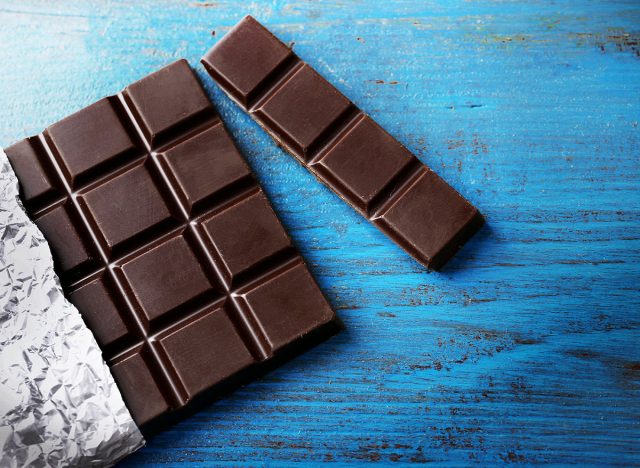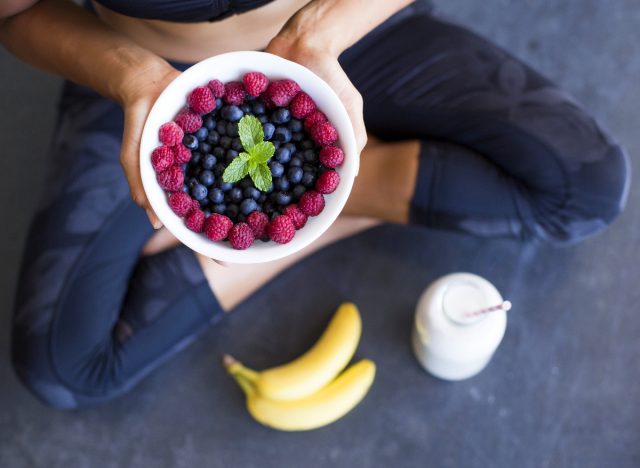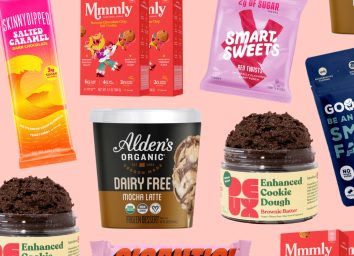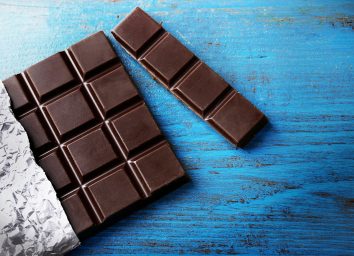Sneaky Facts You Didn’t Know About Your Sweet Tooth, But Should

Let’s be honest: There are two types of snackers in the world—those who opt for savory treats (such as potato chips, popcorn, pretzels, and the like), and those who will always gravitate towards sweets (we’re looking at you, homemade chocolate chip cookies). Whether it’s cozying up in front of the TV or attending a party, it’s human nature to head straight to the snacks table. Snacking is not always easy to control, but it sure is fun and quite tasty when you make the right, healthy decisions (and yes—that is possible).
Let’s dive into some of the specifics. If you’re on team sweets, you know that having a sweet tooth is a struggle that can negatively impact your general and oral health. Some may think chips make a better choice than candy when it comes to snacking, but most chips contain acids and sugar, and some even have coatings that will remain on your pearly whites, leading to oral harm. No snacker is getting off very easy here—we’re just warning you. But note that there is a healthy way to snack, and there are a ton of healthy snacks out there if you know where to look—which we will get into later on.
Right now, though, we’re going to focus on a “20 Questions” sweet tooth survey, conducted by market research platform DentaVox, that was sent to 4,639 participants from across the globe. The report deems to be quite informative and interesting. (For example, did you know that water alone is excellent to rinse your mouth with after enjoying a sweet? H2O will not remove all the sugar from your teeth, but it does a pretty great job. Also, you may be curious to learn that sugar is just as harmful to baby teeth as it is to adult teeth.) Read on to learn some fascinating facts about your dental hygiene, and next, check out The 6 Best Exercises for Strong and Toned Arms in 2022, Trainer Says.
Your sweet tooth can be genetic

The DentaVox questionnaire asked individuals whether or not they felt a sweet tooth is genetic, and 65% of those surveyed believed it is. Research from the University of Copenhagen stated there is actually a 20% likeliness to genetically inherit a sweet tooth. So it might not really be your fault if you dip into, or empty, the cookie jar.
Related: The Best and Worst Foods for Your Oral Health, Say Experts
Sugar-free candy can be just as detrimental to your tooth enamel

Of the respondents surveyed, 43% are under the impression that sugar-free candy is harmless to their oral well-being. To the contrary, scientists from the Oral Health Cooperative Research Centre at Melbourne University reported the high acidic level in various sugar-free sweets, sports drinks, and soft drinks can be just as detrimental (as non-sugar-free) to your tooth enamel.
Related: The Alarming Way Obesity is Linked to Your Dental Health, New Study Says
Chocolate is actually not the worst candy for your oral health

Okay, everyone knows that the goddess of sweets is chocolate. That’s probably why more than 50% of the participants felt that chocolate is a bad guy. Quite surprisingly, GPS Dental notes that chocolate can be more easily removed from your teeth than other sweets and candies. And note that dark chocolate bars have a lower sugar content than both white chocolate and milk chocolate, so if you’re craving something sweet, a dark chocolate bar may just be your best friend.
Science says we can control our sweet tooth—even if the cause may be genetic

A publication in the journal Nature Neuroscience states that the brain simply wants calories that are readily available when it wants to snack, so you can definitely attempt to fight off any sweet cravings. Train yourself to make better choices, like a fresh bowl of berries.
According to The Sugar Association, snacks and drinks that include fermentable carbs (which includes natural and added sugars) can cause cavities and tooth decay without proper dental care. It’s recommended to brush your teeth with fluoride toothpaste two times every day and even limit how much time you expose your pearly whites to fermentable carbs (via The Sugar Association).
What it boils down to is this: Someone with a sweet tooth will most likely never give up snacking completely. So, if you feel the need to snack, choose wisely, do so in moderation, and be diligent with good oral hygiene. If you need some assistance, we’ve rounded up 50 Healthiest Snacks to Eat for Weight Loss and 20 Go-To Snacks Nutritionists Always Have on Hand that will serve as quality inspiration. Note that snacking is not great for your teeth, but it’s a pastime many of us will not want to give up permanently, so be sure to make healthy snacking choices.
Related: The #1 Worst Wellness Mistake You Can Make, New Study Says









